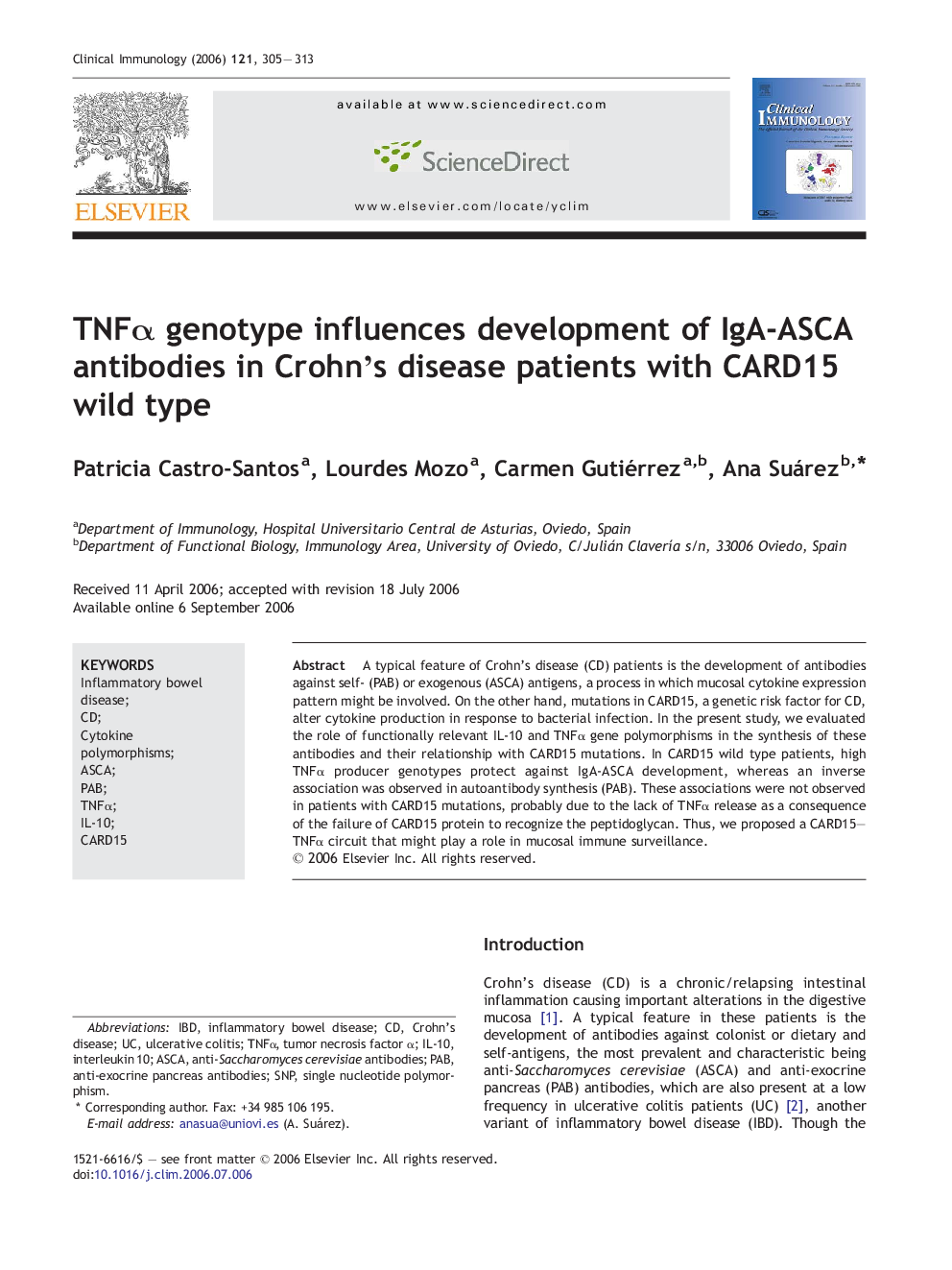| Article ID | Journal | Published Year | Pages | File Type |
|---|---|---|---|---|
| 3258698 | Clinical Immunology | 2006 | 9 Pages |
A typical feature of Crohn's disease (CD) patients is the development of antibodies against self- (PAB) or exogenous (ASCA) antigens, a process in which mucosal cytokine expression pattern might be involved. On the other hand, mutations in CARD15, a genetic risk factor for CD, alter cytokine production in response to bacterial infection. In the present study, we evaluated the role of functionally relevant IL-10 and TNFα gene polymorphisms in the synthesis of these antibodies and their relationship with CARD15 mutations. In CARD15 wild type patients, high TNFα producer genotypes protect against IgA-ASCA development, whereas an inverse association was observed in autoantibody synthesis (PAB). These associations were not observed in patients with CARD15 mutations, probably due to the lack of TNFα release as a consequence of the failure of CARD15 protein to recognize the peptidoglycan. Thus, we proposed a CARD15–TNFα circuit that might play a role in mucosal immune surveillance.
